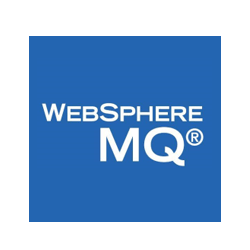
Categories
Values
Reduce Costs
Enhance Staff Productivity
Ensure Security and Business Continuity
Improve Customer Service
Reduce Production Timelines
IBM MQ
IBM MQ, (often referred to as "MQ"), is IBM's Messaging solution for Enterprise and IBM's Message Oriented Middleware offering. It allows independent and potentially non-concurrent applications on a distributed system to securely communicate with each other. MQ is available on a large number of platforms (both IBM and non-IBM), including z/OS (mainframe), OS/400 (IBM System i or AS/400), Transaction Processing Facility, UNIX (AIX, HP-UX, Solaris), HP NonStop, OpenVMS, Linux, OS 2200, and Microsoft Windows.
About Product
Description
IBM MQ is a family of network software products that IBM launched in March 1992. It was originally called MQSeries, and was renamed WebSphere MQ in 2002 to join the suite of WebSphere products. In April 2014, it was renamed IBM MQ.
Message-oriented middleware
Main article: Message-oriented middleware
IBM MQ was the most popular system for messaging across multiple platforms in 2000, including Windows, Linux, OS/2, IBM mainframe and midrange, and Unix.
There are two parts to Message queue (MQ):
Message: Messages are collections of binary or character (for instance ASCII or EBCDIC) data that have some meaning to a participating program. As in other communications protocols, storage, routing, and delivery information is added to the message before transmission and stripped from the message prior to delivery to the receiving application.
Queue: Message queues are objects that store messages in an application.
A Queue Manager, although not strictly required for message-oriented middleware, is an IBM MQ prerequisite and system service that provides a logical container for the message queue, and is responsible for transferring data to other queue managers via message channels.
Programs integrated with IBM MQ use a consistent application program interface (API) across all platforms.
Support of service-oriented architecture
IBM MQ is a key component in IBM's service-oriented architecture (SOA) strategy, providing the universal messaging backbone across 80 different platforms. The growing importance of SOA and the growth of Web Services and other connectivity mechanisms are clearly important developments. Because of the loosely coupled nature of the message queuing model, a large number of existing MQ customers feel that they are already adopting SOA principles. The M.Q Service definition support pack MA93 allows MQ applications to be catalogued as software assets that can be reused and composed as Web Services.
MQ also supports Enterprise Service Bus implementations, both proprietary and open source. For example, the Mule WMQ transport is available with Mule Enterprise Edition version 1.6 or later and, as of 2.2, contains many critical performance and reliability improvements as well as native support for WebSphere MQ-specific features.